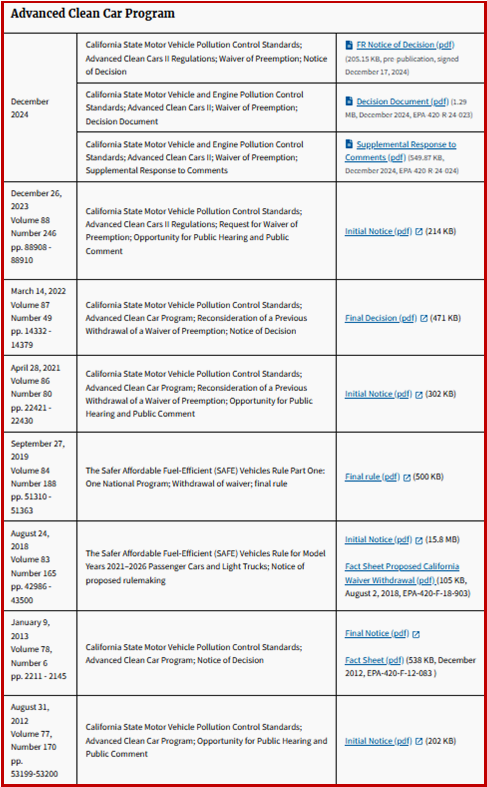Click for more.
The decision is consistent with more than 50 years of precedent that allows California to implement innovative solutions to address its persistent air quality challenges, reflecting the cooperative federalism built into the Clean Air Act and the U.S. Constitution which preserves the rights of states to protect their own public health and welfare.
“Clean cars are here to stay. The Biden-Harris Administration reaffirmed what we’ve known for decades – California can rise to the challenge of protecting our people by cleaning our air and cutting pollution,” said Governor Gavin Newsom. “With more makes and models available than ever before, millions of Californians have already made the switch to clean cars.”
“These waivers support California’s win-win policy priorities: slashing harmful pollution and related health costs while driving investment, innovation, job creation and opportunity,” said California Secretary for Environmental Protection Yana Garcia.
“California’s ongoing success in tackling pollution challenges and improving public health is possible thanks to landmark regulations that support technological innovation and move us toward a zero-emissions future for transportation,” said CARB Chair Liane Randolph. “Consumers and fleets are increasingly making the choice to drive clean vehicles, and today’s waiver approvals will further that progress.”
*ACC II requires an increasing number of clean vehicles be delivered for sale each year. By 2035, all those vehicles must be zero-emission, which includes the option to sell plug-in hybrid vehicles.
• The regulation does not ban fossil fueled cars and pickup trucks; residents can drive existing internal combustion vehicles as long as they want.
• The regulation will save drivers of clean vehicles $7500 in maintenance and fuel costs over the first 10 years of use. It also will cut harmful pollutants by over 25%, save lives and save Californians $13 billion in health costs related to respiratory illnesses.
The Omnibus regulation will require manufacturers to comply with more stringent emissions standards.
• It will cut heavy-duty NOx emissions by 90%, overhaul engine testing procedures, and further extend engine warranties, which will help California meet federal air quality standards and achieve critical public health goals.
• The expected public health benefits from reduced illnesses and other improvements are $23 billion.
EPA maintains a webpage for information on California waivers and authorizations that sets out EPA’s administrative process for California waivers and authorization.


